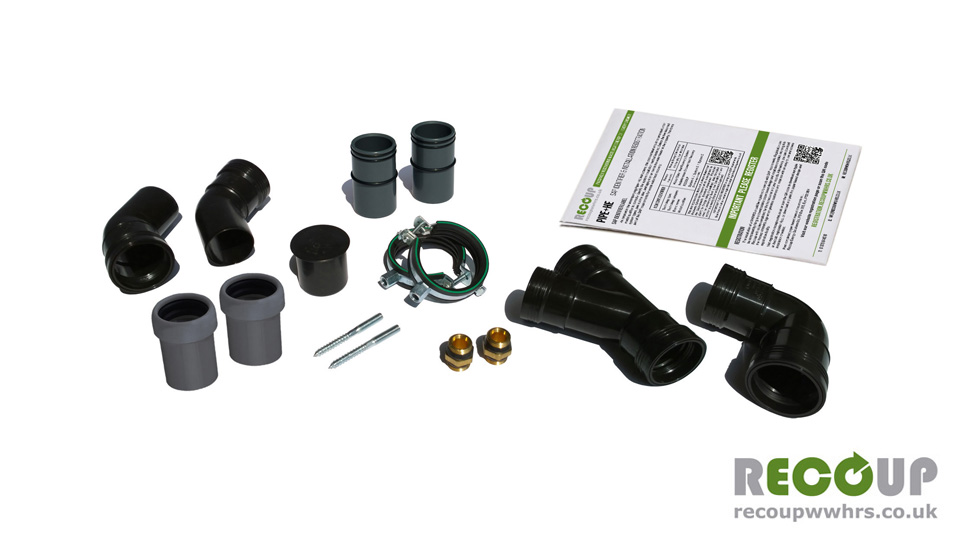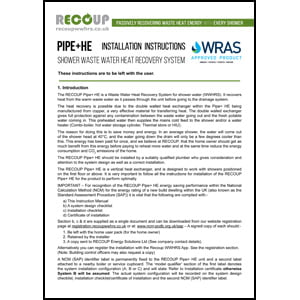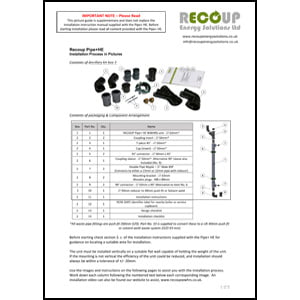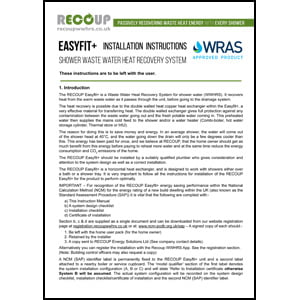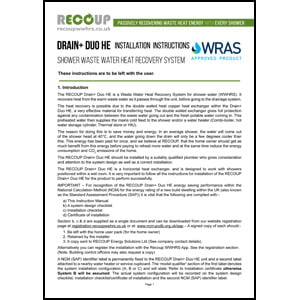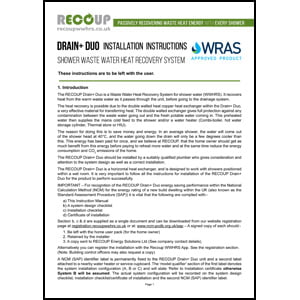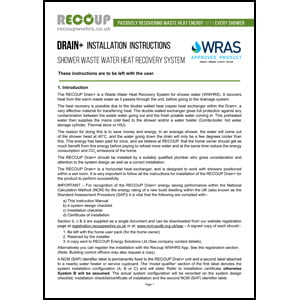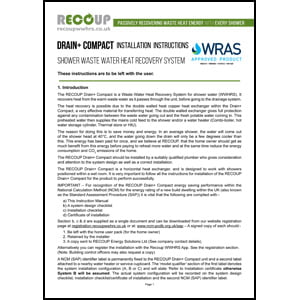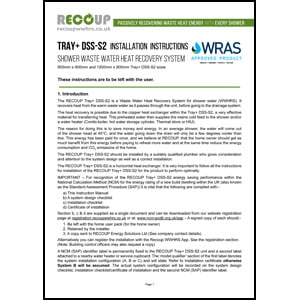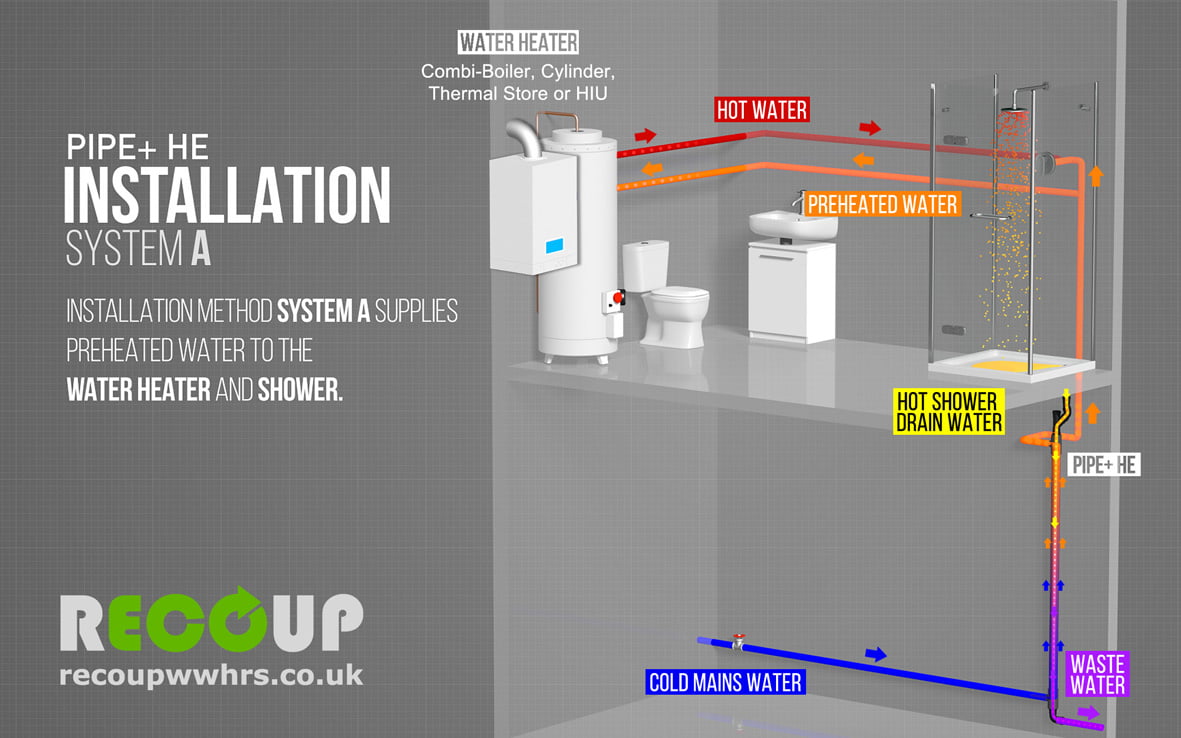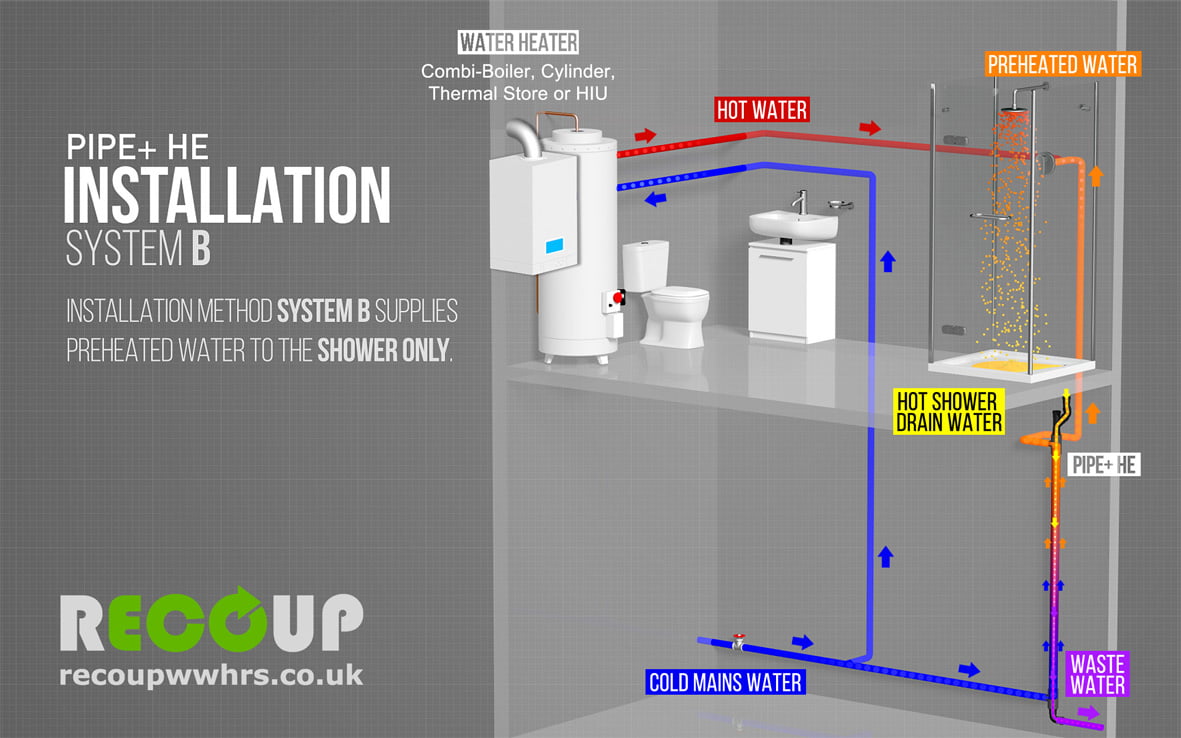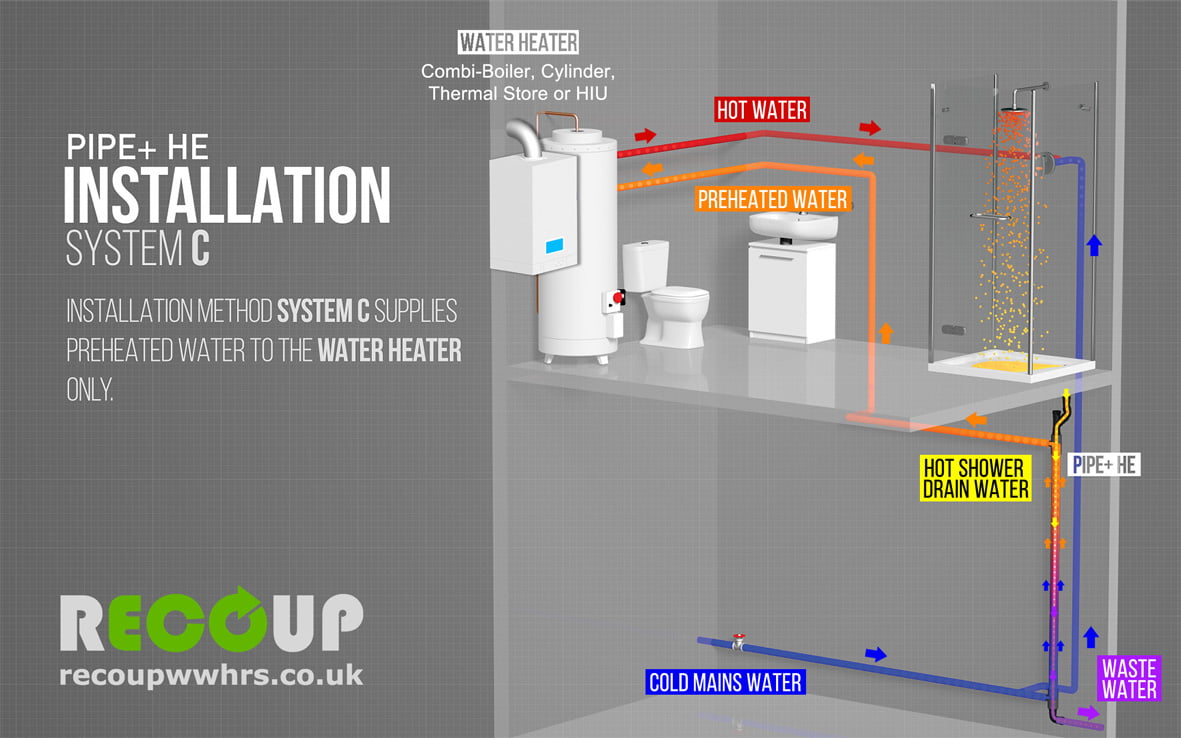Waste Water Heat Recovery for Showers
What the EPC C Target Means for Social Housing and Tenants
The decision by the UK government to require all social-rented homes in England to reach a minimum EPC C (or equivalent) by 2030 marks a major shift in policy and practice. For tenants, it promises warmer homes, lower fuel bills and improved well-being. For housing providers, it signals a bold challenge. Existing stock – often built decades ago and with poorer energy performance – must be brought up to a higher standard within a fixed timeframe.
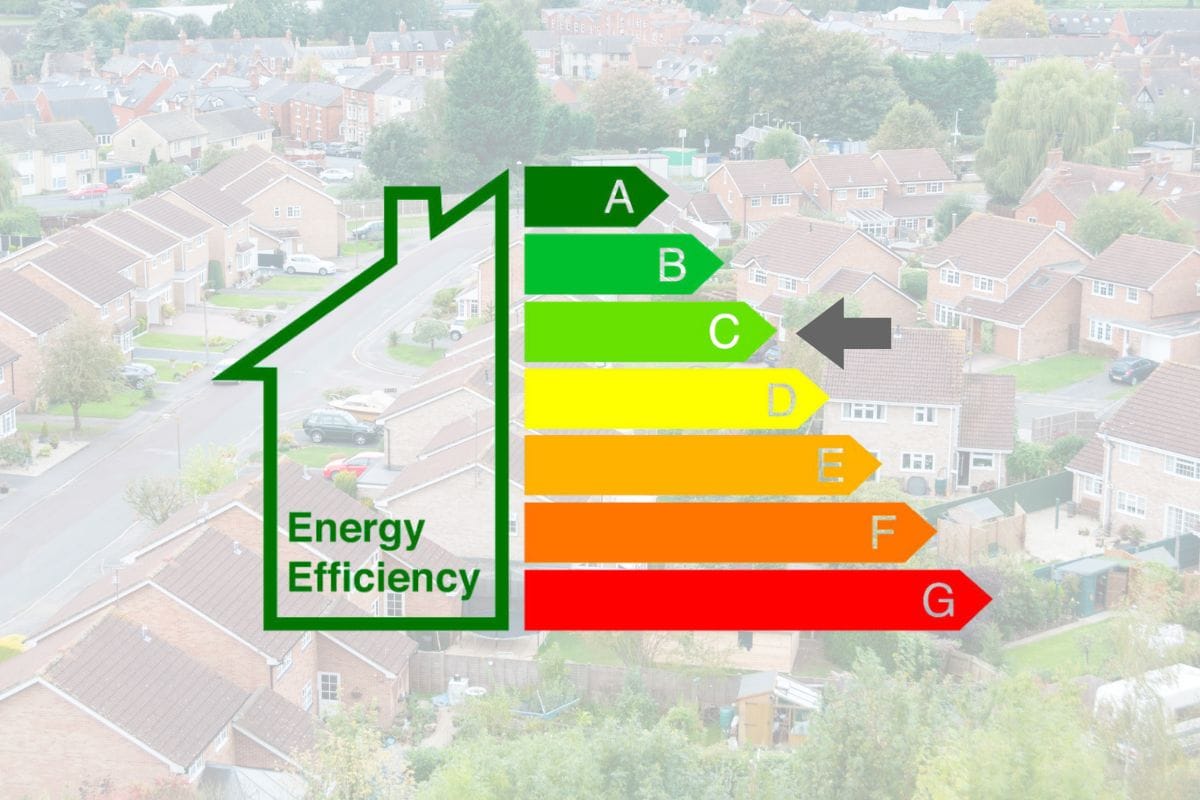
Social housing tenants are disproportionately affected by fuel poverty. Energy-inefficient homes mean higher running costs and colder living conditions. By raising the minimum standard to EPC C, the government is acknowledging that improving energy efficiency is one of the most powerful levers to tackle fuel poverty, improve health outcomes and help meet net-zero ambitions.
At the same time, landlords must accelerate retrofit programmes, secure funding, engage tenants and manage operational delivery – all while maintaining compliance and service standards.
Why Hot-Water Efficiency Matters in the EPC C Journey
In many social homes, much of the energy burden comes from domestic hot-water systems, not space heating. Even as insulation and airtightness improve, hot water remains a large and persistent user of energy, particularly in homes with showers rather than baths. Studies show that up to 90% of a shower’s heat energy currently disappears straight down the drain.
For a social-housing property aiming for EPC C, insulation and upgraded heating systems are vital, but if the hot-water system remains inefficient, those gains will not be as great as they could easily be. Addressing hot-water waste is a crucial part of the retrofit mix, especially when providers want to maximise savings and minimise disruption.
That’s where waste water heat recovery for showers (WWHRS) technology comes in. By capturing the heat that would otherwise be lost from shower waste water and using it to pre-warm incoming cold mains water, a home’s overall energy demand can be reduced – meaning lower bills for tenants and a measurable boost to EPC performance.
How Recoup Products Support Social Housing Providers
Recoup specialises in WWHRS for showers – simple, proven technology that captures heat energy from waste water and recycles it back into the shower system, reducing the demand for hot water. Each system is SAP-listed, WRAS-approved, and engineered to integrate easily into new builds or retrofit projects. They provide the same showering experience and require no planned maintenance or user interaction. They work with any Thermostatic Mixer shower and now also with the first WWHRS compatible electric shower from Mira Showers.
Two Recoup products, combined with the Mira Showers electric shower, stand out as particularly relevant for social housing:
Recoup Heatdeck™ – an innovative shower tray with integrated heat recovery. Ideal for ground-floor bathrooms and retrofit installations, Heatdeck™ captures and reuses up to 43% of the heat energy from shower waste water, reducing the energy needed to heat new hot-water and lowering overall hot-water demand. HeatDeck™ can be used to upgrade existing showers with a tray or to replace a shower over a bath.
Recoup Easyfit+ – a compact, under-bath WWHRS ideal for retrofitting with showers over baths. Easyfit+ delivers up to 47.6% heat recovery efficiency, and fits neatly in the unused space below a standard bath. It’s particularly well-suited to upgrading existing older properties, particularly older social housing, where there is often one bathroom and usually with a shower over a bath..
Mira Heatloop™ – developed in partnership to work alongside all Recoup WWHRS systems. Heatloop™ is the first electric shower dedicated for use with WWHRS. Its ability to thermostatically control the amount of energy required to maintain a consistent temperature allows it to reduce the energy used, as WWHRS provides it with recovered heat. This helps users save up to 40% of the energy that would otherwise be lost. This makes it an excellent solution for social homes with electric showers, where every percentage of efficiency directly benefits tenants on lower incomes or pre-pay tariffs.
Together, these systems offer housing providers flexible solutions to improve EPC performance, reduce carbon emissions, and lower running costs – all with minimal tenant disruption.
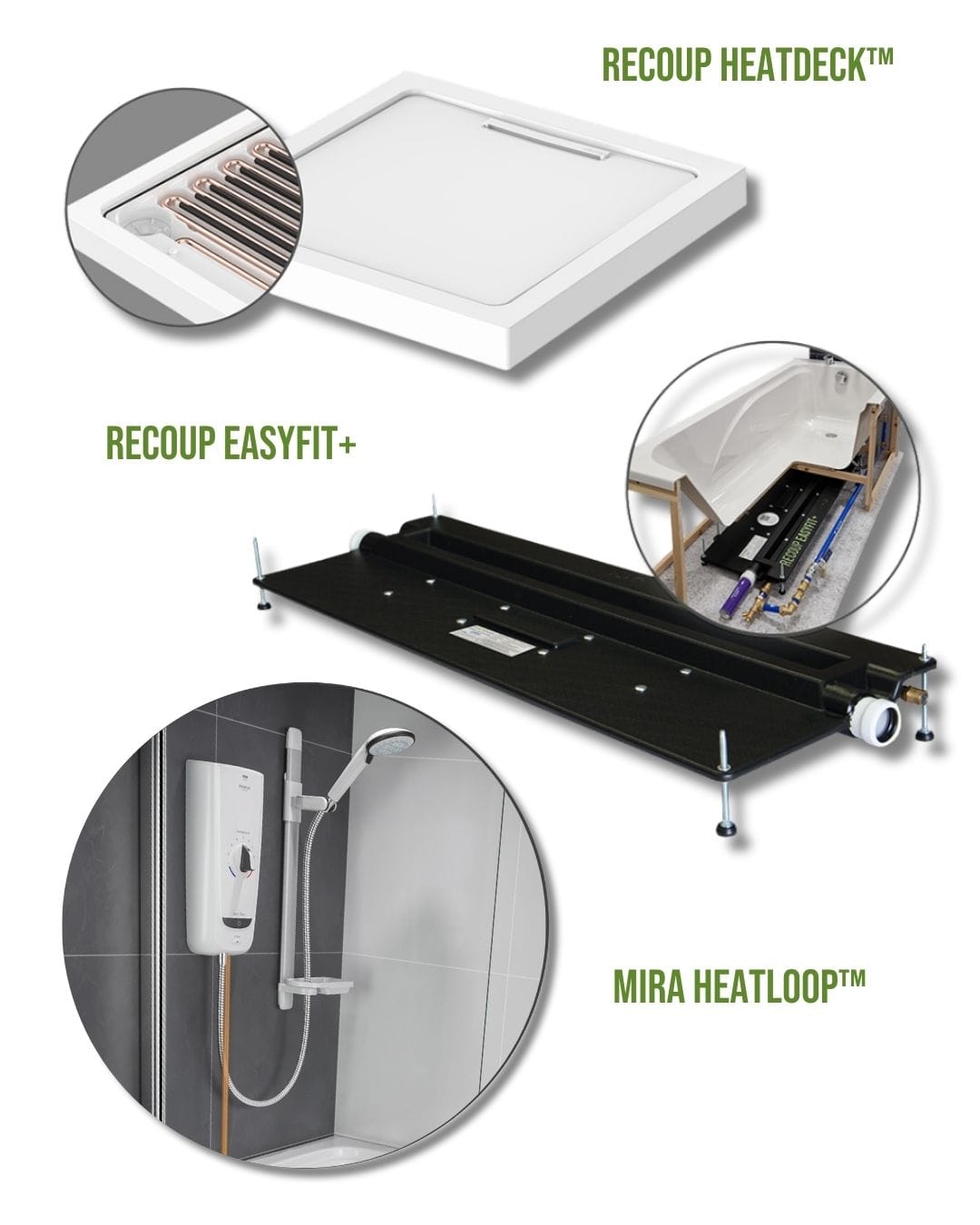
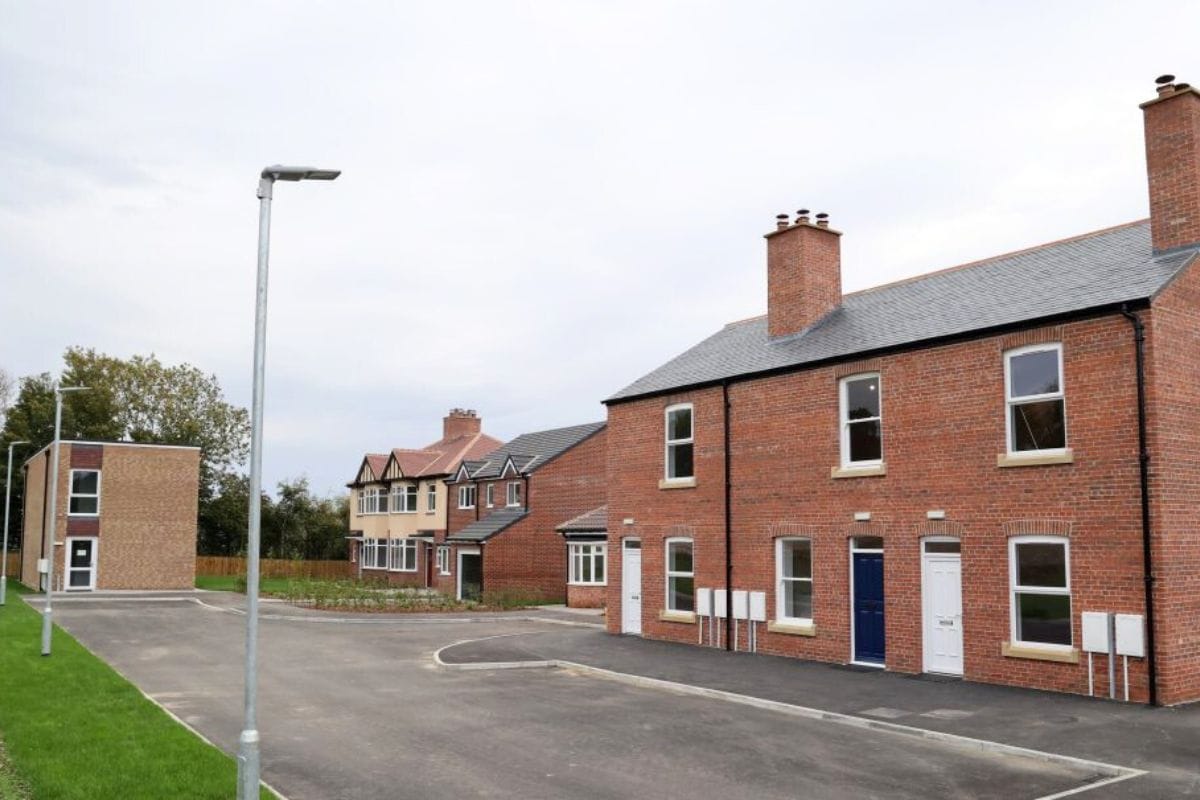
Image: NeRV Project houses on Futures Close. Read Case Study: Scaling Retrofit for Net Zero: The Role of WWHRS at NeRV.
Tangible Benefits for Tenants and Social Housing Providers
For tenants, the benefits are clear and well-documented: lower energy bills, reduced fuel poverty risk, and improved comfort. By pre-heating incoming cold water, WWHRS systems cut the amount of energy required for showering – one of the biggest contributors to household energy use. This translates to lower gas or electricity bills and a smaller carbon footprint.
For social housing providers, Recoup’s systems provide a cost-effective route to higher EPC ratings. They are robust, passive systems with no moving parts and no planned maintenance requirements, making them particularly suited to large-scale housing portfolios. By reducing hot-water demand, WWHRS can also help extend the life of existing heating systems and for New Build properties supports compliance with Part L and the Future Homes Standard.
Smarter Retrofit Integration: Turning Challenges into Opportunities
While every retrofit programme comes with its own complexities, from funding to logistics, WWHRS is a straightforward, scalable technology that turns those challenges into opportunities.
Because the systems can be installed as part of routine bathroom refurbishments or void works, they’re a low-disruption retrofit measure that integrates seamlessly into existing upgrade programmes. Installation can often be completed within standard plumbing schedules, reducing both costs and tenant disruption.
WWHRS also complements other retrofit measures. It works alongside insulation, ventilation, and low-carbon heating systems to deliver whole-home energy savings. Rather than competing for investment, Recoup’s technology enhances the performance of those other measures, providing measurable SAP improvements and supporting long-term carbon-reduction strategies.
Recoup’s technical team partners with housing associations, developers and contractors to design tailored solutions, model energy performance and ensure each installation delivers the best possible efficiency outcomes. This collaborative approach gives providers the data, confidence and technical backing to deliver meaningful, measurable impact.
Looking Ahead: Meeting the 2030 EPC C Deadline
With 2030 fast approaching, the social housing sector must move decisively, but there’s every reason to be optimistic. Achieving EPC C is both a compliance milestone and a chance to create warmer, healthier, and more affordable homes for residents.
Recoup’s range of WWHRS technologies, including Heatdeck™, and Easyfit+, combined with Mira Heatloop™, provides a practical, scalable route to reach that goal. As housing stock becomes better insulated, the proportion of energy used for hot water will rise. Recovering that heat is now essential to keeping homes efficient and affordable.
By making WWHRS part of their strategy, social housing providers can capture a genuine win-win: helping residents save money, improving EPC scores, and moving closer to net-zero housing targets.
To find out more or discuss how Recoup can support your EPC C or retrofit programme, get in touch with our technical team.

